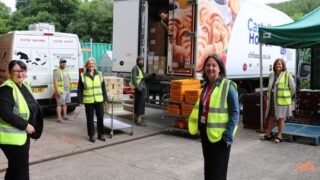UNISON warns that so-called u-turn is not what it seems.
Child protection services in the UK are still at risk of being takenover by profit making companies, despite Government claims to the contrary, warned UNISON, the UK’s largest union. Revised legislation published this week by the Department for Education states that the ‘regulations will not prevent an otherwise profit-making company from setting up a separate non profit making subsidiary to enable them to undertake such functions’.
UNISON believes this undermines the strong views expressed in the consultation responses which showed clear rejection of the Government’s privatisation plans.
Helga Pile, UNISON national officer for social care said:
“The Government claims to have listened to concerns from charities, organisations and professionals over their reckless plans to turn child protection into a profit- making venture. But the truth is they have left a back door open for profit making companies to set up their own non-profit subsidiaries to take over the critical and sensitive function ofdeciding how best to protect vulnerable children.
“There is a huge risk that the likes of Serco and G4S could create these subsidiaries as part of their wider businesses. These companies could end up making a profit out of vulnerable children and their families. There is an obvious conflict of interest as some of these companies also run children’shomes. It will make it difficult to know how funds will flow between their profit-making and non-profit making arms.
“Such a change could undermine public confidence. Effective child protection relies on public trust. The public needs to be able to trust local child protection teams so they can feel confident to report concerns they may have about a child and trust that if they raise a concern the service will act in the best interests of that child”
“What child protection services need are enough well trained, social workers with the resources available to let them get on with the job.”
A recent ComRes survey for UNISON found that only 5% of the British public think private companies are best placed to make decisions regarding child protection social work.
The online poll of 2,010 Britons showed that four in five (79%) agreed there could be a conflict of interest if companies already running children’s homes were those making the decision about whether a child should be taken into care.
Two thirds (66%) of the public think local authorities are best placed to deal with child protection. Only a minority (15%) are in favour of changing the law to allow private companies to move in. The survey shows less than a quarter (24%) of those surveyed said they would trust social workers employed by a social enterprise company.
http://www.legislation.gov.uk/ukdsi/2014/9780111116920/pdfs/ukdsiem_9780111116920_en.pdf
Get help now
Follow us




